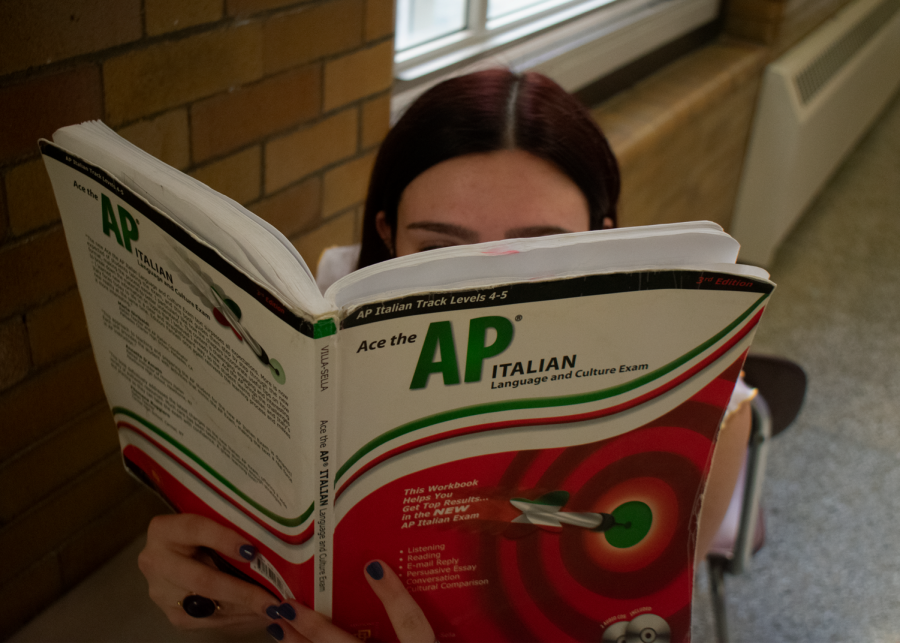Self-Studying for APs Is Worth It
For many students, self-studying for AP tests is the only way to explore subjects that they otherwise would not be able to take. This convenient strategy should be supported by Boston Latin School administration, which prides itself on college readiness. Although students may choose to learn the AP content outside of the classroom, the school is still responsible for providing for their education and preparing them for success by assisting students in self-studying.
The concept of self-learning material is one that BLS students are well-acquainted with, especially popularized after the pandemic and challenging virtual schooling. It is, however, still a demanding and stressful process that can lead to increased burnout and anxiety.
Many students choose to prepare for AP tests individually for a variety of reasons despite the tough workload, some of which are due to school-related restrictions like class overflows, scheduling complications or just the fact that a certain AP course is not offered at BLS. The limit on the number of AP classes students can take also causes overachieving students to prepare for exams outside of school.
A passing score on an AP exam is an impressive addition to one’s college application. Many will self-study for APs to look more attractive to competitive colleges and demonstrate their academic prowess. AP exams may also provide college credit, helping students graduate earlier.
Self-studying is no easy task; students are less likely to enjoy the subject they are learning when they self-study because they miss out on the classroom experience, leading to frustration and a sense of isolation. They also do not receive a GPA boost as a reward for their efforts outside of school.
There is no doubt that self-studying is tougher than taking an AP course in school. Salman Uddin (III) says, “I would feel somewhat comfortable [self-studying], but there are definitely advantages to being taught and many people would not be capable of learning by themselves.”
BLS AP Environmental Science teacher Mr. Timothy Gay states, “I think the hardest part is preparing for the breadth and depth of the courses. Students are required to become experts on the topic and capable of answering on a variety of topics. Recently, the College Board changed the exams to make them more challenging and require more problem-solving.”
Self-studying, therefore, could negatively affect one’s mental health if done completely independently. BLS, being a school that focuses on college readiness, can ease such a burden by supporting students who choose to self-study. Assistance from the school could come in many forms, from merely approving request forms to hosting study groups. Creighton Banitt (III) believes he “would not feel comfortable passing [the exam]” if he had zero guidance while self-studying.
Many lower-income students also cannot afford the ample resources required to study for a course on their own time. Students who heavily rely on instruction from the school are stuck with the three-AP limit, while those who can afford to purchase textbooks can self-study more courses much more easily.
This disparity contributes to an inflexible imbalance of success between students with differing financial situations. To make sure that all students can self-study and reach their full academic potential, the school should provide sufficient materials to assist those who choose to study on their own. Academic resources from the school can help close this gap, as seen with the advantages AP classes already provide.
This support, however, should not be prioritized over the courses provided in school. As much as it is necessary for self-studying students, it should not rival the support BLS provides for the students preparing during school hours. Doing so may encourage taking too many AP courses, thereby contradicting the very reason behind the initial limit.
The school should instead seek a compromise with what resources it offers. Inclusive opportunities like the administration of practice exams, AP-specific tutoring or study groups after school or during W block would be extremely beneficial.
These programs should focus on studying and reviewing for the exams instead of just re-teaching the course’s content. Such resources provided by the school would not only give appropriate support to students who need it, but also take their mental well-being into consideration.







